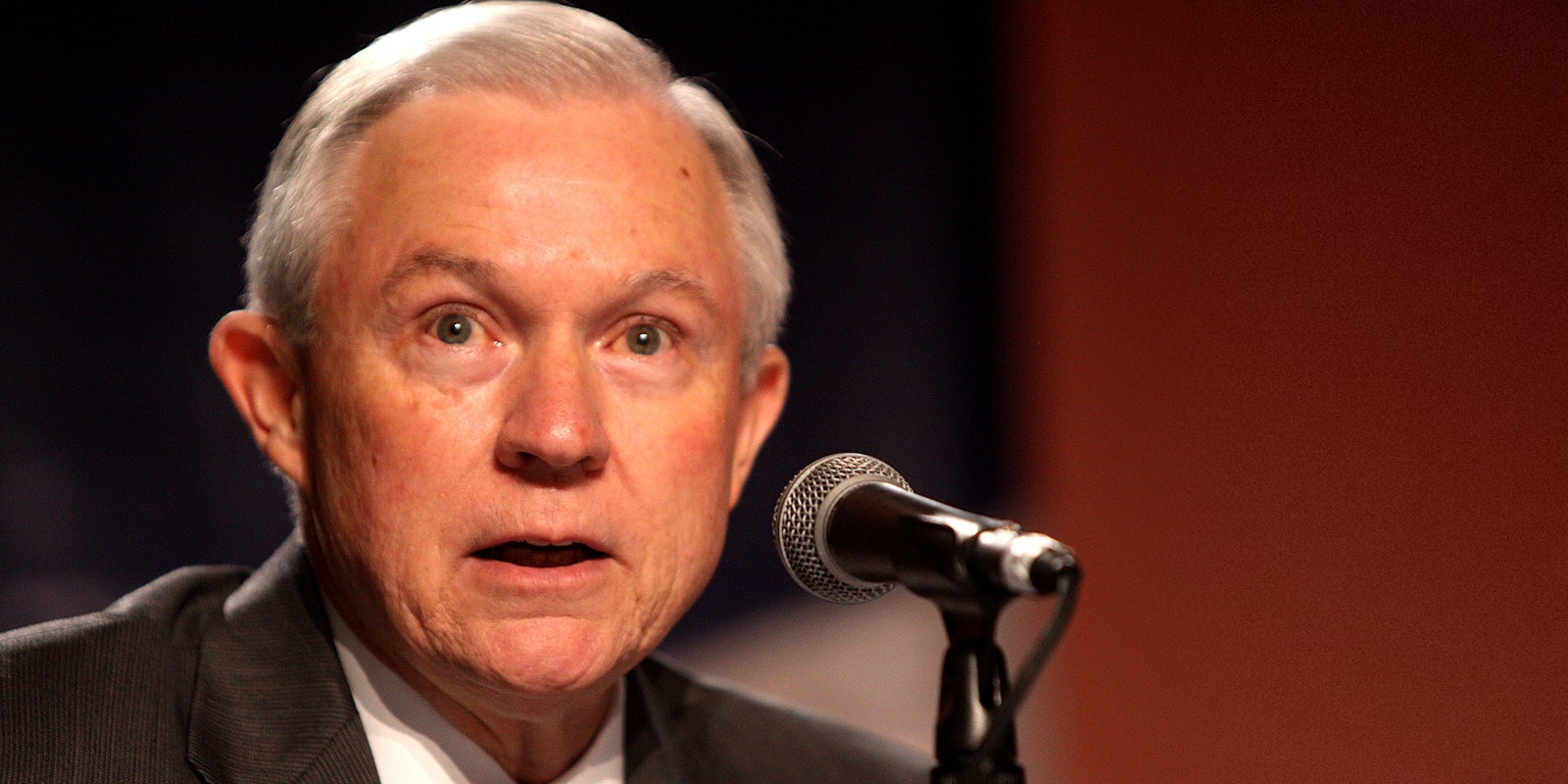Jeff Sessions is fond of comparing marijuana to heroin. Just like the White House.
During a speech on Wednesday before law enforcement officials in Richmond, Virginia, Attorney General criticized research into using marijuana as a way to treat heroin addiction. “I am astonished to hear people suggest that we can solve our heroin crisis by legalizing marijuana,” he said, “so people can trade one life-wrecking dependency for another that’s only slightly less awful.”
There is no definitive proof that marijuana can help those addicted to opioids ween off the drug. Most of the evidence is anecdotal, and few if any doctors would prescribe marijuana for this purpose. But states where marijuana has been decriminalized have become more open to investigating this possibility, having been ravaged by opioid addiction in the form of heroin and painkillers, such as Oxycontin and Vicodin.
According to the Center for Disease Control, opioid deaths in 2015 surpassed 30,000 for the first time in recent history. The Washington Post reports that for the first time since the late 1990s, more people died from heroin than traditional opioid painkillers.
No one has ever overdosed on marijuana.
Overdoses typically occur because a drug suppresses a person’s ability to breath. But marijuana does not affect the body in this way—though it can impair judgement, leading people to put themselves at risk. (You should never drive while intoxicated on any substance whatsoever.)
As the National Cancer Institute explains:
Because cannabinoid receptors, unlike opioid receptors, are not located in the brainstem areas controlling respiration, lethal overdoses from Cannabis and cannabinoids do not occur. However, cannabinoid receptors are present in other tissues throughout the body, not just in the central nervous system, and adverse effects include tachycardia, hypotension, conjunctival injection, bronchodilation, muscle relaxation, and decreased gastrointestinal motility.
Although cannabinoids are considered by some to be addictive drugs, their addictive potential is considerably lower than that of other prescribed agents or substances of abuse. The brain develops a tolerance to cannabinoids.
Sessions’ remarks Wednesday were aimed at coupling two vastly different drugs, marijuana and heroin, as if they’re approximately the same thing. One is “slightly” worse than the other, he said, propagating an extreme perspective—not about marijuana, which cannot kill by overdose, but about heroin, which claims thousands of lives every year.
The idea that marijuana is a “gateway drug” is controversial, even to public health officials. One might assume that a majority of marijuana users understand that heroin is a drug that kills; the risk versus reward with regards to opioids does not favor the user. The addiction is painful, long lasting, and life ruining. Marijuana users do not experience these terrible side effects, which is not to say dependency is nonexistent.
But Sessions, America’s top law enforcement official, appears determined to blur the line between marijuana and heroin. “Our nation needs to say clearly once again that using drugs will destroy your life,” he said. “Educating people and telling them the terrible truth about drugs and addiction will result in better choices.”
If the goal is to convince the drug-free that marijuana is equally deadly, Sessions is unlikely to prevail. But another risk, and a far more dangerous one, is that he will succeed in convincing some marijuana users that heroin is only “slightly worse” than the drug they’re already using.
Still, it is a sentiment that resonates with many law enforcement officials still waging a decades-old war on drugs, one that has led to punitive sentencing practices for minor drug offenses, and exploding prison populations, which predominantly affects people of color: African-Americans are more than five times more likely to be imprisoned, even though the rate of drug use among whites is higher, according to surveys over the past decade.
Regarding Sessions’ speech in Virginia, a senior advisor at the Fraternal Order of Police told NBC News: “Happily for us, on a vast majority of issues, we’re on the same page.”
